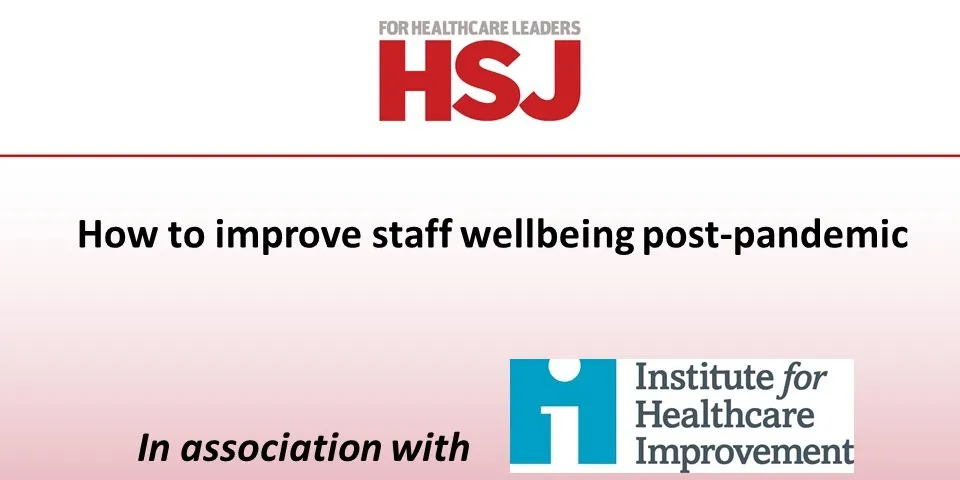
How to improve staff wellbeing post-pandemic
The wellbeing of its staff has always been a key issue for the NHS but the covid pandemic has brought the subject into focus like never before.
As well as staff deaths and illnesses from covid, the NHS is having to deal with staff suffering from ”long covid” and others who have suffered emotionally from the trauma of caring for so many desperately unwell patients.
Many others will not have suffered such high levels of pyschological trauma but will be feeling exhausted after working through the pandemic and may have lost touch with their motivation for working within the NHS. Burnout and compasssion fatigue may be buzz words but they may also accurately describe many NHS workers’ current state.
The is a latent risk for NHS organisations that this could lead to increased staff turnover and absenteeism, and ultimately impact on the quality of patient care.
But the need to support these staff also brings issues of equality and equity, and whether some staff should be treated differently.
This HSJ webinar, in association with IHI, asked:
- What are the most pressing areas of staff wellbeing which NHS organisations need to consider as we come out of the pandemic? How are these likely to change over the next few months?
- What should the NHS do to ensure staff are treated equitably – not just equally – when issues of wellbeing are considered? What groups of staff are most in need of support around their wellbeing?
- How do NHS organisations need to engage with staff to ensure the right issues are addressed and to measure progress?
- What are the practical steps NHS organisations and their senior leaders can take to assist staff with their wellbeing over the next few months?
